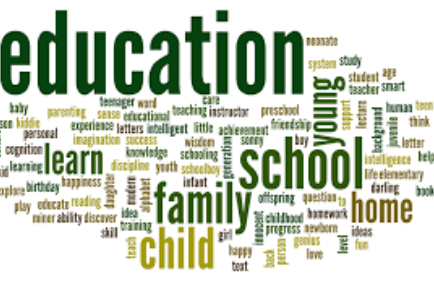Introduction:
Education is the cornerstone of progress and development, shaping the minds of individuals and societies alike. In the 21st century, the landscape of education is evolving rapidly, driven by technological advancements, changing global dynamics, and the need for a skilled and adaptable workforce. This article explores the key facets of education in our modern world, emphasizing its transformative power and the challenges it faces.
Technology in Education: Bridging Gaps and Expanding Horizons (150 words):
The integration of technology in education has revolutionized the way we learn. Digital platforms, interactive content, and online resources have democratized access to information, breaking down geographical barriers and providing opportunities for remote learning. From virtual classrooms to interactive simulations, technology has become an indispensable tool for educators and students alike.
The Importance of Lifelong Learning (150 words):
In an era of rapid technological advancements and evolving job markets, the concept of lifelong learning has gained prominence. Education is no longer confined to classrooms and textbooks; it is a continuous journey of acquiring new skills, adapting to change, and staying relevant in an ever-shifting landscape. Lifelong learning empowers individuals to navigate the complexities of the modern world and fosters a culture of curiosity and adaptability.
Challenges in Education: Inequality and Access (150 words):
Despite the strides in educational technology, access to quality education remains a challenge, perpetuating social and economic disparities. In many parts of the world, marginalized communities still face barriers to entry, be it due to lack of infrastructure, gender bias, or economic constraints. Bridging this gap is crucial for creating a more equitable society and unlocking the potential of every individual, regardless of their background.
Global Citizenship and Interconnectedness (150 words):
The 21st-century education goes beyond imparting knowledge; it cultivates global citizens. In an interconnected world, understanding diverse cultures, appreciating different perspectives, and fostering empathy are essential components of education. Schools and universities play a pivotal role in shaping individuals who can contribute positively to a global society, addressing challenges like climate change, poverty, and social injustice collaboratively.
Skills for the Future: Beyond Academics (150 words):
The traditional focus on academic excellence is expanding to include a broader set of skills deemed essential for success in the 21st century. Critical thinking, creativity, communication, and collaboration are increasingly recognized as vital skills that complement academic knowledge. Educational institutions are adapting their curricula to nurture these skills, preparing students not only for exams but for the complexities of the real world.
Innovations in Teaching and Learning (150 words):
Progressive teaching methods and innovative learning approaches are reshaping the educational landscape. Project-based learning, flipped classrooms, and personalized learning experiences cater to individual needs and learning styles. Educators are embracing technology not only as a tool but as an enabler of creativity and engagement. These innovations are breaking the monotony of traditional education, making learning a dynamic and interactive process.
The Role of Educators: Nurturing Minds and Character (150 words):
Beyond the dissemination of information, educators play a crucial role in shaping the character and values of the next generation. A holistic approach to education involves not only academic guidance but also mentorship, instilling ethical values, and fostering a love for learning. The influence of a dedicated teacher extends far beyond the classroom, leaving a lasting impact on the lives of students.
Conclusion:
In the 21st century, education stands at the intersection of tradition and transformation. While technology continues to reshape the learning landscape, the core values of education – equality, lifelong learning, global citizenship, and character development – remain steadfast. As we navigate the challenges of the modern world, empowering minds through education remains the key to unlocking the full potential of individuals and building a sustainable and inclusive future.

Education truly is the bedrock of progress and development, not just for individuals but for entire societies. The discussion on technology in education resonates deeply with me, as I've experienced firsthand how digital platforms and online resources have broadened my learning horizons. I recently read on https://papersowl.com/examples/civil-rights-movement/ and it was quite interesting. Since I was writing a story on the Civil Rights Movement and I needed more information. Lifelong learning is a concept that I fully embrace, especially in today's fast-paced world where adaptability is key to success. However, the mention of challenges in education, particularly inequality and access, reminds me of the disparities that still exist globally. It's disheartening to think that not everyone has the same opportunities to receive a quality education. Yet, I find hope in the idea of education fostering global citizenship and interconnectedness. Understanding different cultures and perspectives is crucial in today's interconnected world. The emphasis on skills beyond academics is also noteworthy. As a student, I value the importance of critical thinking, creativity, communication, and collaboration in preparing for the future.
Downvoting a post can decrease pending rewards and make it less visible. Common reasons:
Submit